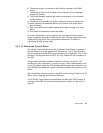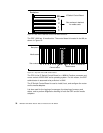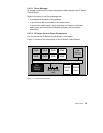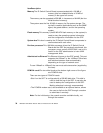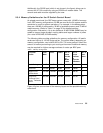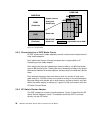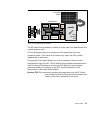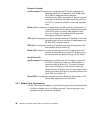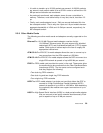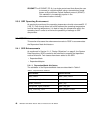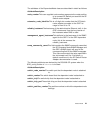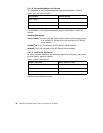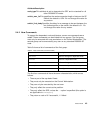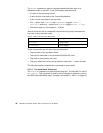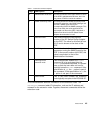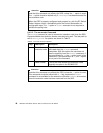Router Node 39
• It is able to transfer up to 30,000 packets per second. At 20,000 packets
per second, each packet needs to be at 5 KB in order to achieve the 100
MB per second transfer rate mentioned.
• As previously mentioned, each adapter stores its own route tables in
memory. Therefore, route table lookup is very fast, that is, less than 2.5
µs.
• Finally, each media adapter has a 1 Gbit per second dedicated link into
the crosspoint switch. That is why the 4-port and 16-port models have an
aggregate bandwidth of 4 Gbit and 16 Gbit per second, respectively, for
the crosspoint switch.
2.3.8 Other Media Cards
The following are other media cards and adapters currently supported on the
GRF:
EthernetThe 10/100 Mb Ethernet media adapter consists of eight
10/100BaseT Ethernet ports. All ports support only shielded
twisted pair (STP) and unshielded twisted pair (UTP-5) copper
cables. Other types of cables require the user to supply the
appropriate transceivers.
ATM OC-3cThe ATM OC-3c media adapter allows the user to connect up to
two connections into the ATM network at 155 Mb/s.
ATM OC-12cThe ATM OC-12c media adapter allows the GRF to connect to a
single ATM network at speeds of up to 622 Mb per second.
FDDIThe FDDI media card provides four ports in the card. These ports allow
the media card to be connected into the Fiber Distributed Data
Interchange (FDDI). The four ports can be configured such
that they support the following:
• Two dual-ring FDDI networks
• One dual-ring and two single-ring FDDI networks
• Four single-ring FDDI networks
HIPPIThe HIPPI media adapter is a single-port card that allows the GRF to
connect to a High Performance Parallel Interface (HIPPI)
network at speeds of up to 800 or 1600 Mb/s. After deducting
the overhead, this medium can support connections of up to
100 MB/s.
HSSIThe High Speed Serial Interface (HSSI) is a dual-ported media adapter
that can connect to two serial networks simultaneously. Each
port is capable of up to 45 Mb per second.



